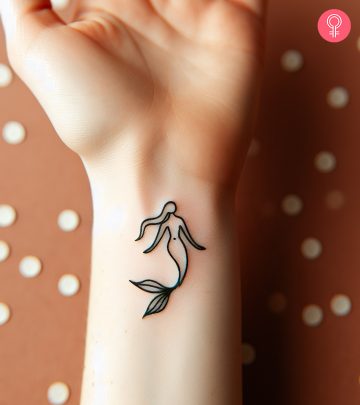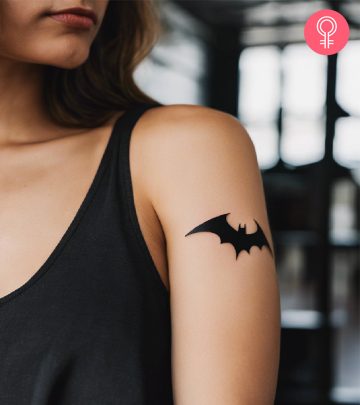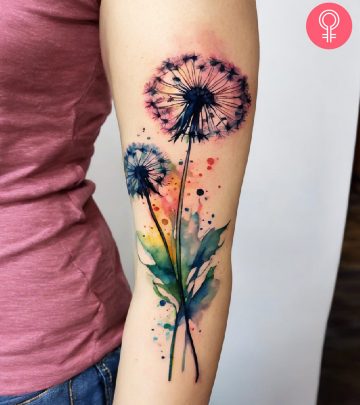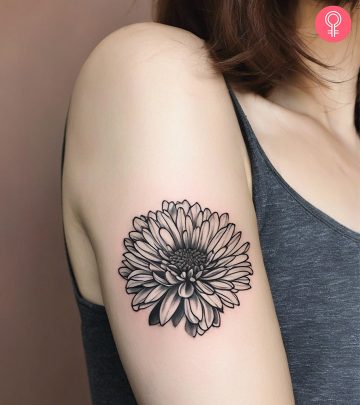Experts Answer Most Searched Questions About Breast Cancer
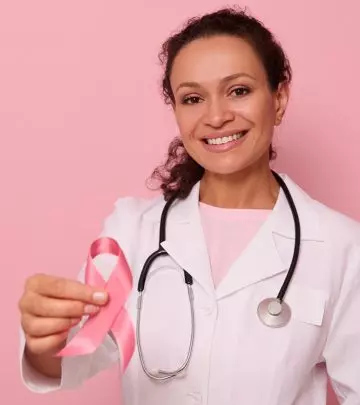
Image: Shutterstock
In 2021, about 2 million new cases of breast cancer have been recorded in the US (1). Globally, this number has surpassed lung, colorectal, and prostate cancers (2). It goes without saying that breast cancer awareness is a top priority for women. Early detection and timely treatment are key to treating cancer and stopping it from spreading to other parts of your body. What are the early signs? What should you do if you are diagnosed with breast cancer? We talked to breast cancer doctors, nurses, rehabilitation therapists, and psychologists to get their expert insights. Give it a read and share this post with all the women you know!
Featured Experts
- Dr. Karen Hendershott, Board-certified and Fellow with the American College of Surgery and Breast Surgical Oncologist at Arizona Oncology
- Dr. Samuel Waxman, Founder and CEO of the Samuel Waxman Cancer Research Foundation
- Dr. Sheri D. Marquez, MD, Board-certified Radiation Oncologist and Medical Director of the Cecilia Gonzalez De La Hoya Cancer Center at Adventist Health, White Memorial
- Dr. Nikita Shah, MD and Breast Surgeon at City of Hope.
- Dr. Eva Meyers, FNP-BC, PhD, Cancer Detection Program and Certified Genetic Counsellor, Cecilia Gonzalez De La Hoya Cancer Center
- Dr. Fuller-Christenson, NP, Double board-certified Family and Women’s Health Nurse Practitioner
- Dr. Mitchell E. Gross, M.D., PhD, and Research Director of the Lawrence J. Ellison Institute for Transformative Medicine
- Dr. Som Kohanzadeh, Board-certified Surgeon at the Beverly Hills Breast Center
- Dr. Dennis Holmes, Medical Director of the Adventist Health Glendale Breast Surgery Program and an expert in TARGIT-IORT
- Beret Loncar, Owner of Body Mechanics and experienced in breast cancer recovery and pain patients
- Shagoon Maurya, Registered Counseling Psychologist and Founder of Safe Space
- Carrie Kozel, PT, DPT, CES/CLT of Turning Point Breast Cancer Rehabilitation
1. At what age can you get breast cancer?
Dr. Karen Hendershott: Breast cancer can happen at almost any age. A ten-year-old girl is the youngest person on record. But, the chances of breast cancer increase as you get older. At age 30, the risk is 1 in 204. At age 50, it’s 1 in 42. And at age 70, the risk increases to 1 in 24 women.
2. What are the early signs of breast cancer?
Dr. Karen Hendershott: The best way to detect breast cancer is BEFORE there are any signs! A mammogram is the most common detection method, and this finds cancers so small that there are no symptoms.
Dr. Samuel Waxman: It is vital to know your family history. Breast cancer is detected through mammography or sonography starting at 35 with family history and after 40 for all women.
Dr. Sheri D. Marquez: Look for these common signs:
- Breast lump (painless, but can be painful) – tissue feeling different than surrounding tissue.
- Change in the size, shape, and contour of your breast/s.
- Unexpected nipple discharge.
- Breast rash, changes in the skin (including dimpling or unexplained skin peeling).
- New breast pain.
- Nipple inversion.
- Redness/pitting/swelling of breast skin like an orange peel.
- Any change in how the breast feels in comparison to your baseline.
3. How does breast cancer affect sex life?
Dr. Nikita Shah: Intimacy can be more challenging after treatment due to physical changes to your body, side effects from treatments, and your overall mental well-being. Even though many are reluctant to discuss their challenges with intimacy, it’s a common issue many women face during and after treatment for breast cancer.
Dr. Karen Hendershott: Breast cancer in and of itself does not necessarily affect someone’s sex life, but the treatments can. After breast surgery – most commonly after a mastectomy – the breasts are numb and don’t have a normal response to touch and stimulation. Having a breast that has been removed or one that no longer looks normal because of surgery and radiation can have an impact on body image.
Chemotherapy and hormone-blocking pills are often used to treat breast cancer. These medications can cause vaginal dryness, vaginal atrophy, and loss of libido. If you have issues with treatment, it is very important to discuss them with your doctor. There are strategies that can help reduce these side effects.
4. What prevention measures can women take against breast cancer?
Dr. Nikita Shah: It’s important for you to know your family medical history. If you have a family history of breast or ovarian cancer, you may want to talk with your primary care physician about genetic evaluation and possible testing to see if you carry a genetic mutation (such as BRCA 1 or 2) that puts you at a high lifetime risk of developing breast cancer. Even if you do not carry a genetic mutation, you still may be at higher risk than the average woman. If you are found to be at high risk, you may be offered closer imaging surveillance and sometimes even medications to help lower your risk of breast cancer.
Dr. Karen Hendershott: Taking hormone replacement therapy (combined estrogen and progesterone) increases the risk of breast cancer by as much as 75%. While it’s best to avoid hormone replacement therapy pills, if you need to take them, use the smallest dose for the shortest amount of time.
Dr. Eva Meyers: Change your lifestyle. Here’s what else you can do to minimize the risk of breast cancer:
- Follow a healthy, balanced diet and maintain a healthy weight. Obesity is associated with increased risk.
- Minimize alcohol intake.
- Regular exercise – 30 minutes 3-7 times/week at a moderate level (getting sweaty).
- Screening mammograms as recommended by your doctor; monthly breast self-exams, 1 week after menses in premenopausal women.
- Breastfeeding may reduce the risk of breast cancer (and potentially ovarian cancer). The longer you breastfeed, the potentially greater the protective effect. Women diagnosed with breast cancer who breastfed were shown to have a 30% lower risk of recurrence for certain breast cancers and a 28% lower risk of dying from breast cancer versus women with breast cancer who never breastfed (3).
- Preventative surgery/genetic screening and other interventions in select women at high risk (consult your doctor to see if you are considered high-risk).
5. What is the first step after being diagnosed with breast cancer?
Dr. Nikita Shah: It’s important to seek medical care right away. You will need a medical oncologist, a breast surgical oncologist, and a radiation oncologist on your treatment team. Look for physicians/treatment teams who are affiliated with a National Cancer Institute-designated comprehensive cancer center who are board-certified in their specialties and are experienced with treating breast cancer.
Dr. Karen Hendershott: They will review your imaging and biopsy results, explain what type of breast cancer you have (there are many kinds, and each is treated differently!), and will help coordinate your care with other specialists as needed.
6. How to perform a breast self-exam?
Dr. Fuller-Christenson: A breast self-exam can help you check for lumps and anomalies. Here’s how to perform a breast self-exam:
- Lie down on your back and place your right arm behind your head. When lying down, the breast tissue spreads out as thinly as possible, which can make it easier to feel all the tissue.
- Use the pads of your three middle fingers on your left hand to feel for lumps in your right breast. Move the fingers in dime-sized circles up and down your breast. You will need to use three different levels of pressure on each spot you are feeling breast tissue before moving on to the next area. If you are unsure of the amount of pressure, please speak with your healthcare provider, but the general rules are as follows:
- Light pressure: Feels tissue closest to your skin
- Medium pressure: Feels a little deeper
- Firm pressure: Feels tissue closest to the chest and ribs. You may feel a firm ridge in the lower curve of each breast.
- Examine your entire breast using the vertical pattern (up and down pattern). You will start from your underarm and move your fingers little by little until you reach the bottom of your ribcage. Slightly move your fingers towards the middle and repeat the process of moving little by little back up until you reach your collarbone. Repeat this pattern until you have covered your entire breast and reached the breastbone (sternum).
- Repeat the exam on your left breast using your right hand and placing your left arm behind your head.
7. Is it possible to get two types of cancer in one breast?
Dr. Sheri D. Marquez: Yes. It is fortunately uncommon, but it is possible to get two different breast cancers in the same breast. Treatment guidelines typically follow the more aggressive cancer. The way I think about it is that the whole breast is susceptible and whatever predisposed first cancer to evolve, other areas of the breast are vulnerable as well.
8. Can certain foods and stress trigger breast cancer?
Dr. Mitchell E. Gross: Regular alcohol intake can increase the risk for breast cancer. It has been estimated that the relative risk of breast cancer increases by 7% for each drink a woman consumes per day.
Dr. Samuel Waxman: Maintaining a healthy diet and active lifestyle can decrease the risk.
Dr. Sheri D. Marquez: Diets high in fried food and processed meats and refined sugars/carbs are thought to have an association with increased risk of breast cancer, largely attributed to the fact that these foods can lead to increased weight/obesity, a proven risk factor.
Dr. Som Kohanzadeh: There are absolutely no links to stress.
9. Can breast cancer be cured completely in all stages?
Dr. Mitchell E. Gross: The great majority of patients with breast cancer are cured, especially when it is diagnosed at an early stage.
Dr. Som Kohanzadeh: Breast cancer can be reversed with multiple non-invasive therapies or surgical treatment.
Dr. Karen Hendershott: Once breast cancer has spread beyond the breast and the lymph nodes in the armpit to other parts of the body (lung, liver, bone, etc.), it is treatable but no longer considered curable.
Dr. Dennis Holmes: By detecting cancer in its earliest stages, women achieve better overall survival, require fewer treatments, and may qualify for less invasive treatment, such as intraoperative radiotherapy (IORT).
10. How can you prepare your body and mind for treatment?
Dr. Sheri D. Marquez: Different women find empowerment through different approaches. Many women find that knowledge is power and comfort. Learn more about breast cancer. Ask a doctor you trust, and ask a lot of questions.
Some patients immerse themselves in exercise and peaceful activities (e.g., meditation), and it may be helpful to seek professional counseling to better cope with and understand the situation. Understand that treatment may have side effects, and it is important to be sensitive to your body’s needs during this time. Sometimes just acknowledging the fear, mortality issues, and overwhelming sense of the situation can help patients get through decisions faster. Some women feel that continuing to work during this time helps distract them and helps them feel relatively normal, while others need time off work to address their physical and psychological needs.
Dr. Eva Meyers: A lot of support groups are attended by breast cancer survivors. Some women find it helpful to hear about other patient experiences. Talk to them about their course of treatments to get an idea of the potential journey ahead for you. You may even make new friends who understand what you are going through.
Beret Loncar: Post-mastectomy care and treatment are equally important. Women may have a lifetime of range of motion issues, not be able to lay face down due to implants, and feel weird about people touching and seeing their breasts or even open up to self-care that is not medical.
There are specialized massage therapists out there who will do breast massage, give you a special pillow so you can lay face down, and let you breathe again. And there are yoga teachers out there who can help you find yourself.
11. Importance Of Psychological Counseling For Cancer Survivors And The Caregiver(s)
Shagoon Maurya: As a diagnosis is life-changing and can be incredibly emotionally exhaustive, it can affect relationships between family and friends and the recovery process.
Cancer patients are likely to recover sooner when kept in high spirits. However, cancer patients might not want to share their stressful and anxious situations with close ones to avoid burdening them. This might further lead them to feel isolated. If they see the caregivers managing emotions well and being strong, it might encourage them to share their experiences and heal faster.
Carrie Kozel: Psychological counseling can also help survivors learn to better articulate their needs to their caregivers/loved ones.
12. Can cancer come back after treatment?
Dr. Samuel Waxman: Yes. That is why treatments are often extended for prevention and ongoing surveillance to detect early reoccurrence.
Dr. Sheri D. Marquez: For many women, breast cancer never recurs. For some women, breast cancer may come back, usually in the first 5 years after treatment but sometimes years later. This is why long-term follow-up and surveillance evaluations with your oncology team are advocated.
In many cases now, women live many, many years with metastatic disease, and it’s often managed like it’s a chronic disease. There are a lot of effective treatments out there now tailored for each woman’s specific breast cancer. We are changing how we see women with metastatic disease, and with the latest advances in technology and medications, women are living longer with this disease.
Breast cancer awareness is the need of the hour, given its rise today. Genetic predisposition is a risk factor, but so are modern-day diet and lifestyle habits. As mentioned by the doctors, early detection is key to preventing and treating breast cancer. Novel technologies and medicines make it possible to reverse, survive, and live with breast cancer.
Moreover, the support of your near and dear ones and your willpower are crucial in your journey. Join a support group and seek psychological counseling to get the mental support you need. Bring out your inner warrior. And as breast cancer survivor Olivia Newton-John said, “Fight each round and take it on the chin. And never, never, never, ever give in.”
References
Articles on StyleCraze are backed by verified information from peer-reviewed and academic research papers, reputed organizations, research institutions, and medical associations to ensure accuracy and relevance. Read our editorial policy to learn more.
- Cancer Facts & Figures 2021
https://www.cancer.org/research/cancer-facts-statistics/all-cancer-facts-figures/cancer-facts-figures-2021.html - Global Cancer Statistics 2020: GLOBOCAN Estimates of Incidence and Mortality Worldwide for 36 Cancers in 185 Countries
https://acsjournals.onlinelibrary.wiley.com/doi/full/10.3322/caac.21660 - History of breastfeeding associated with reduced risk of breast cancer recurrence
https://www.sciencedaily.com/releases/2015/04/150428171358.htm














